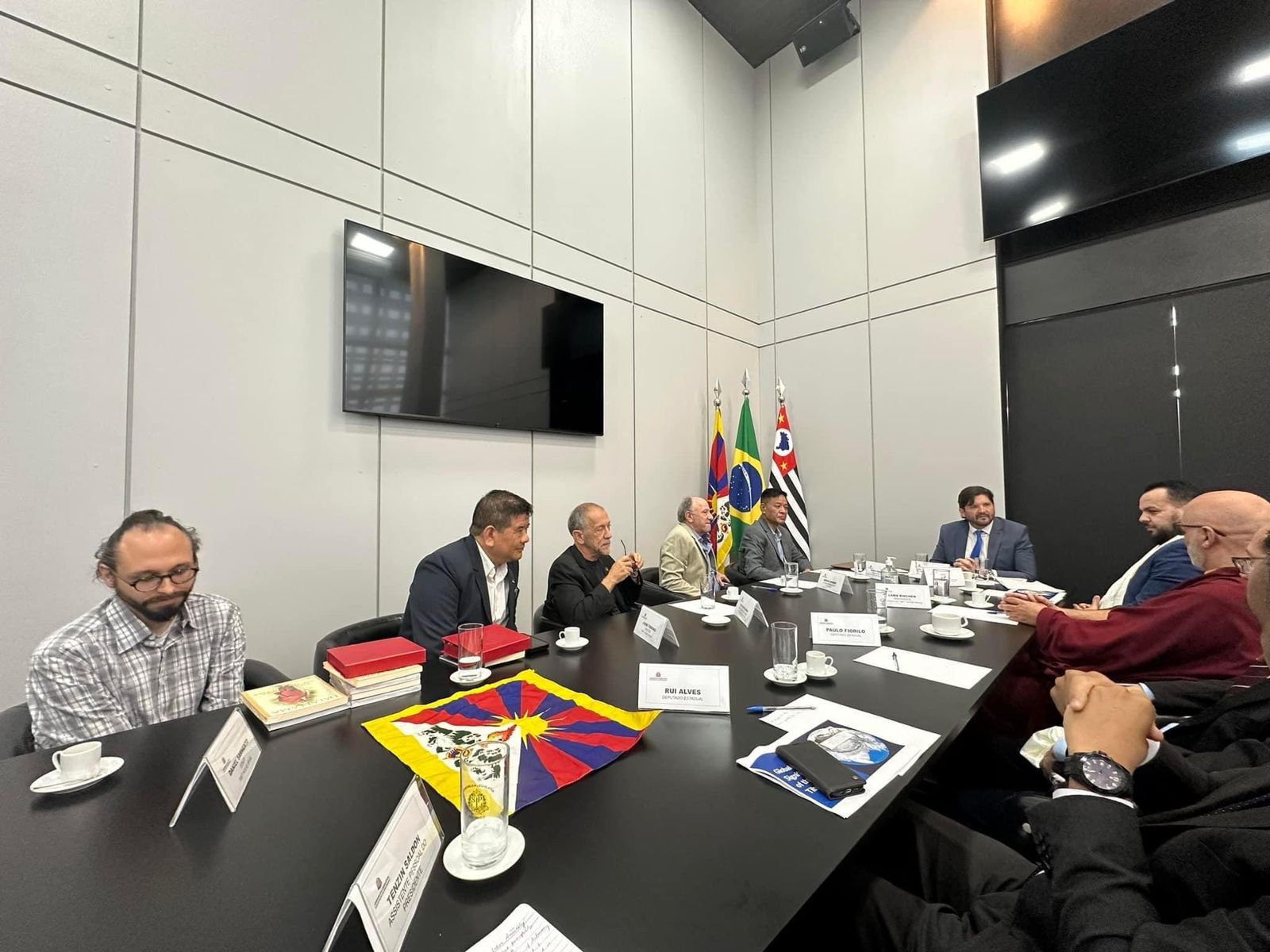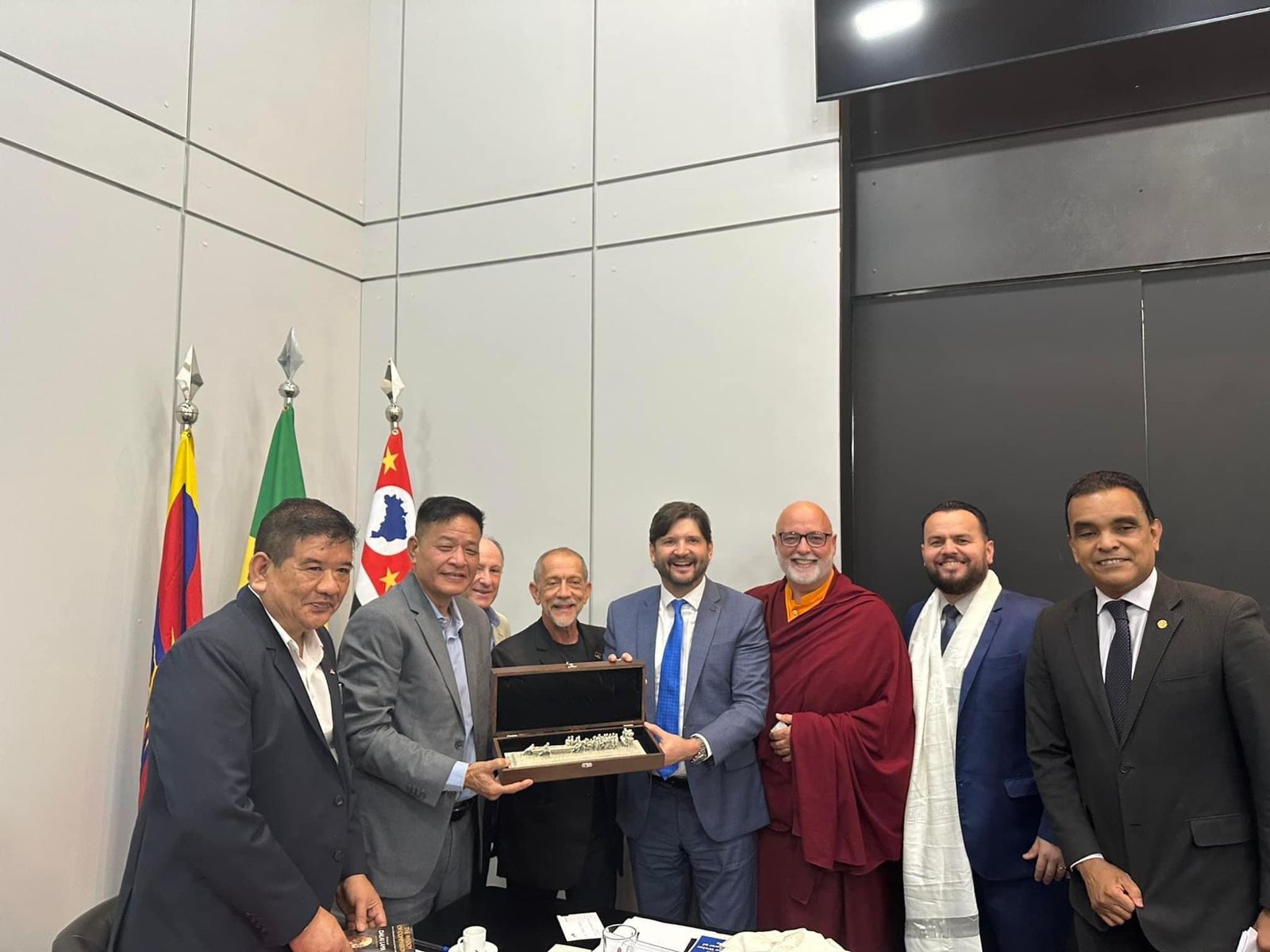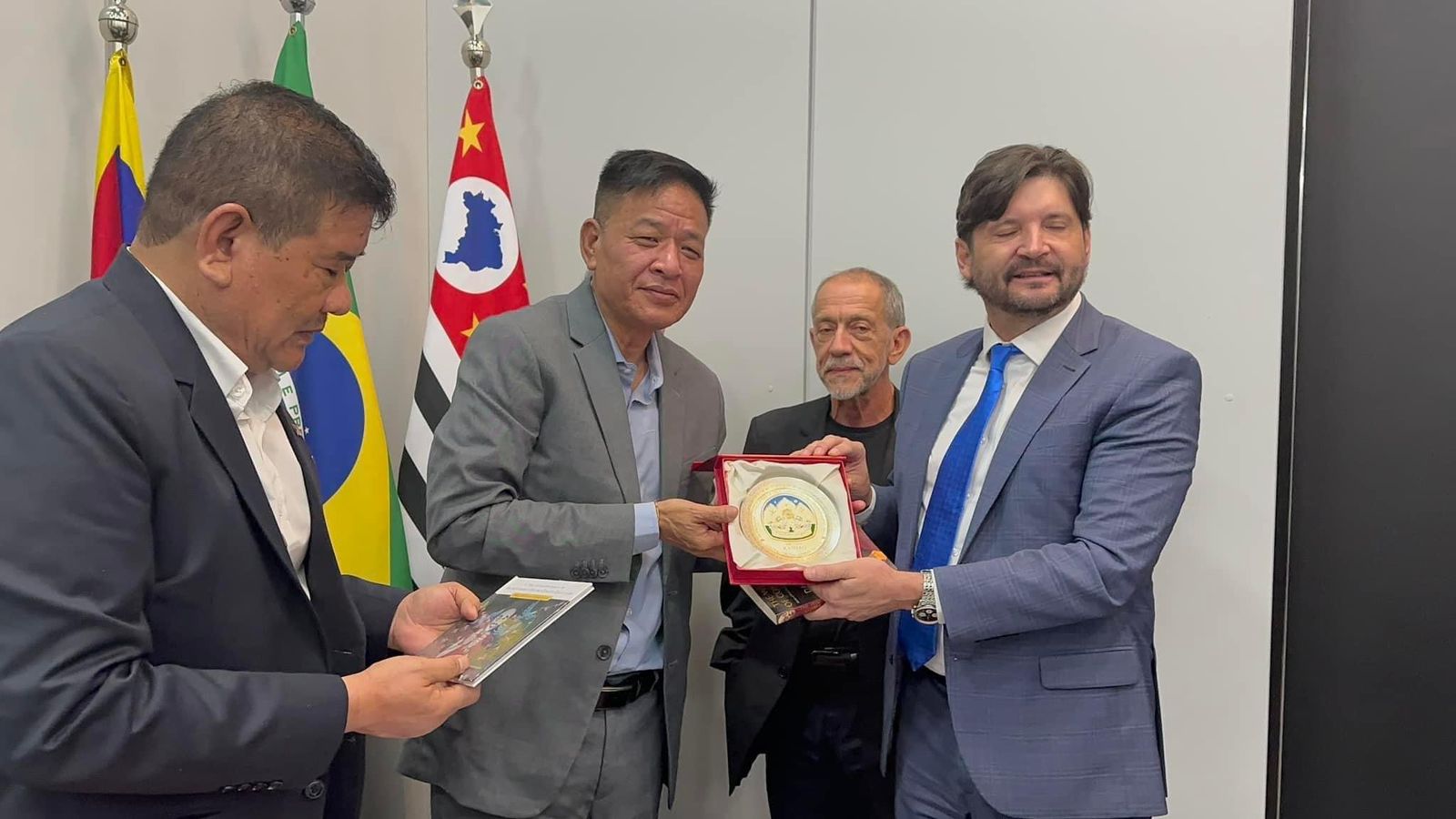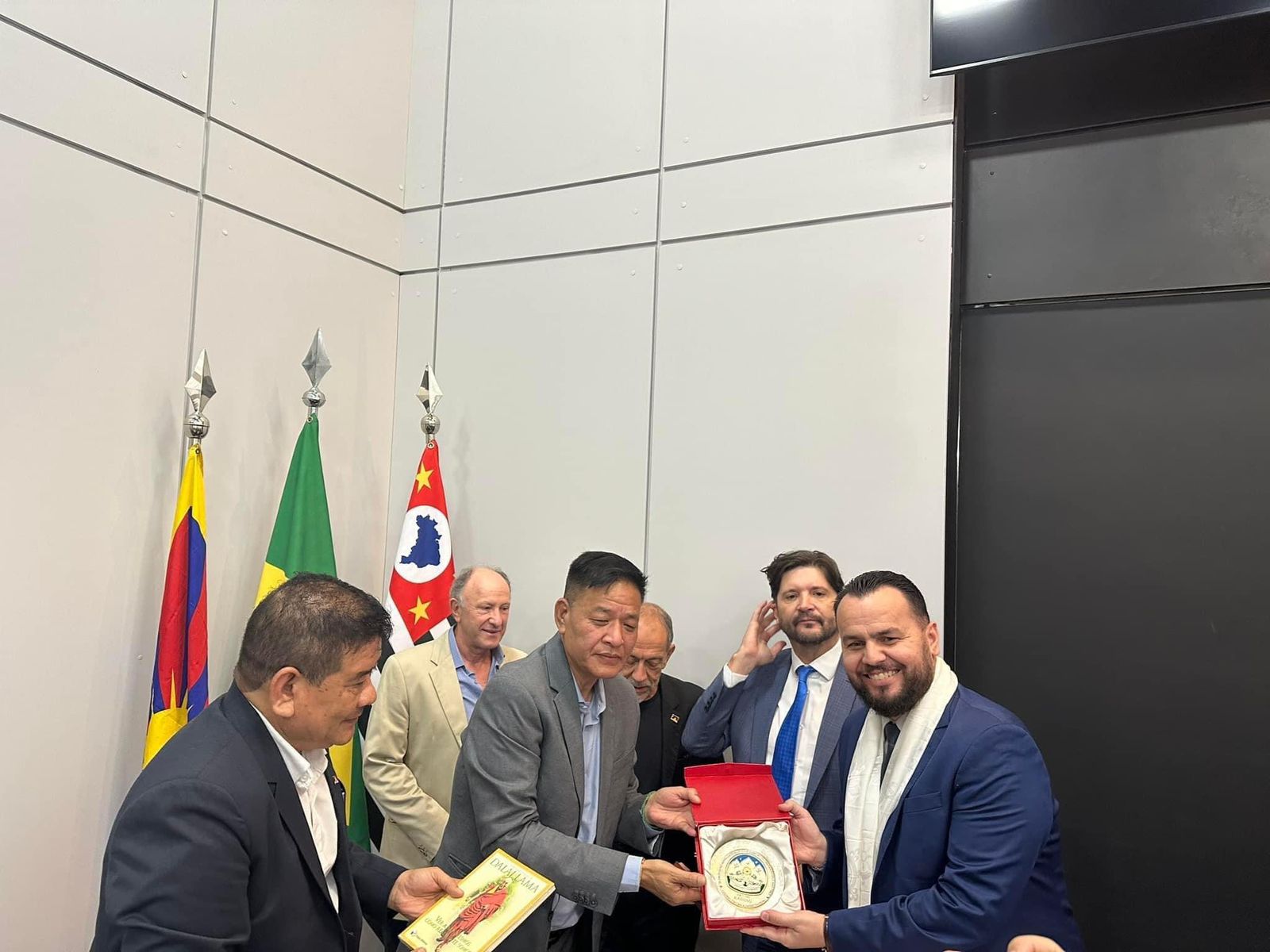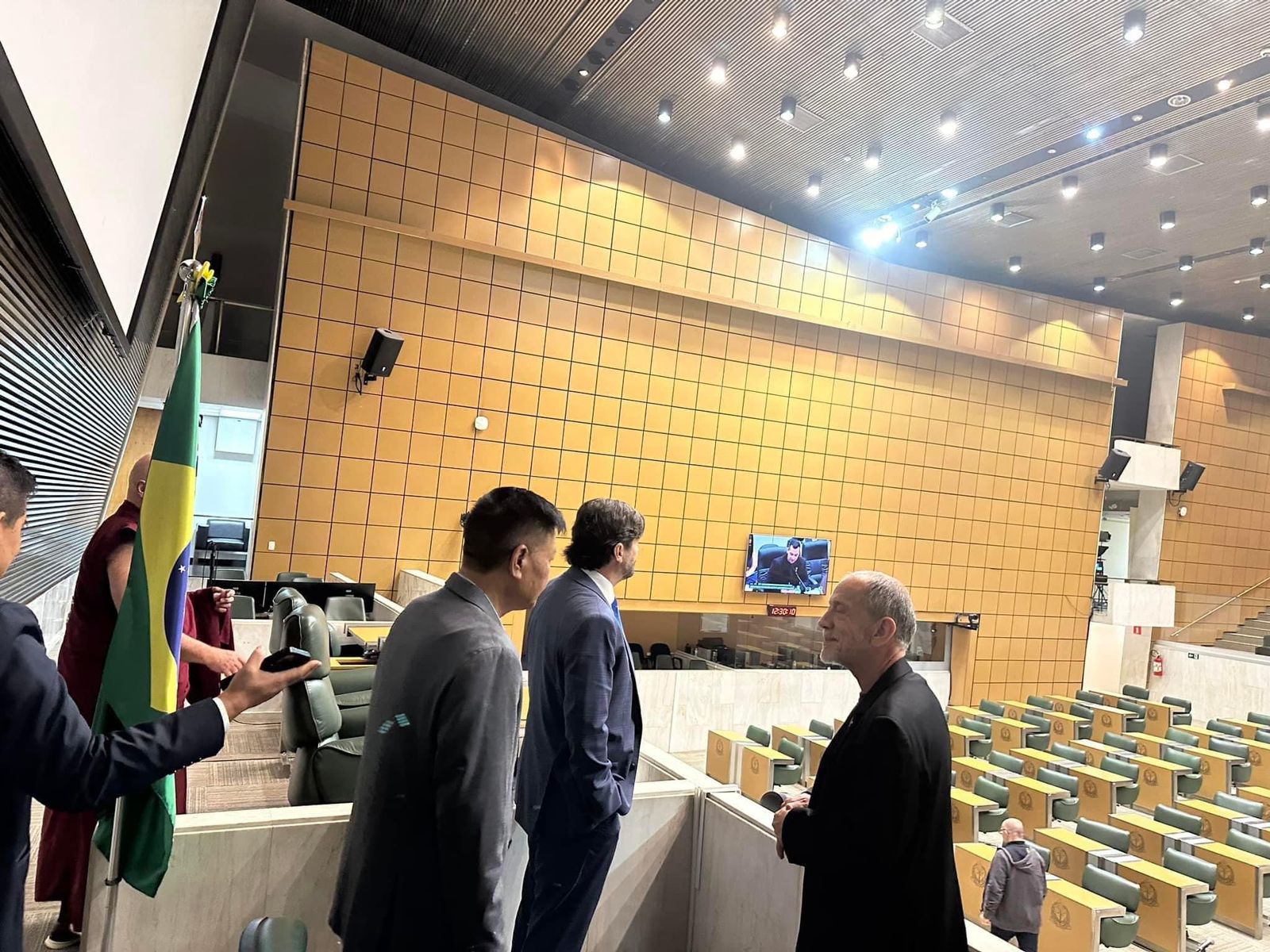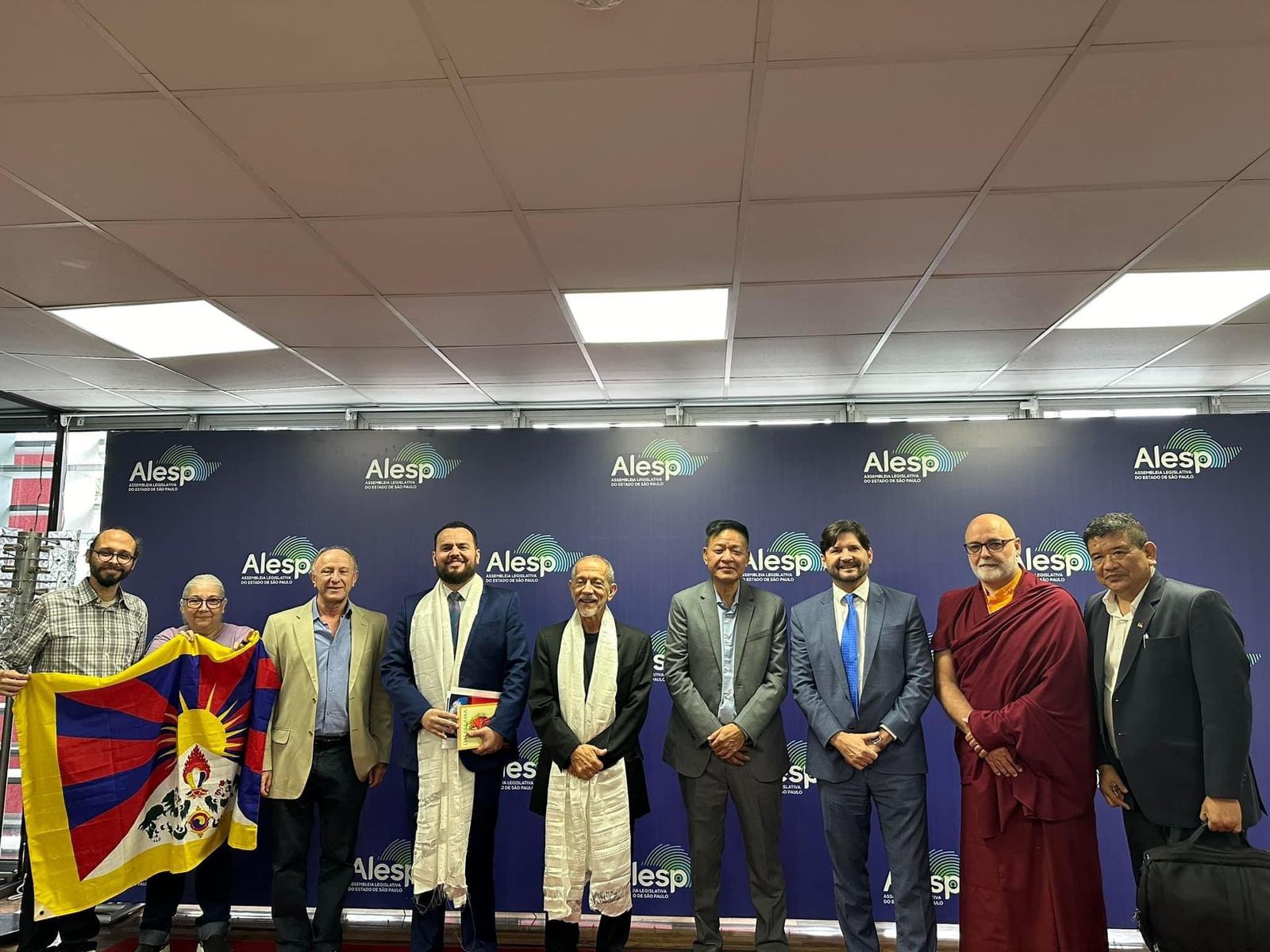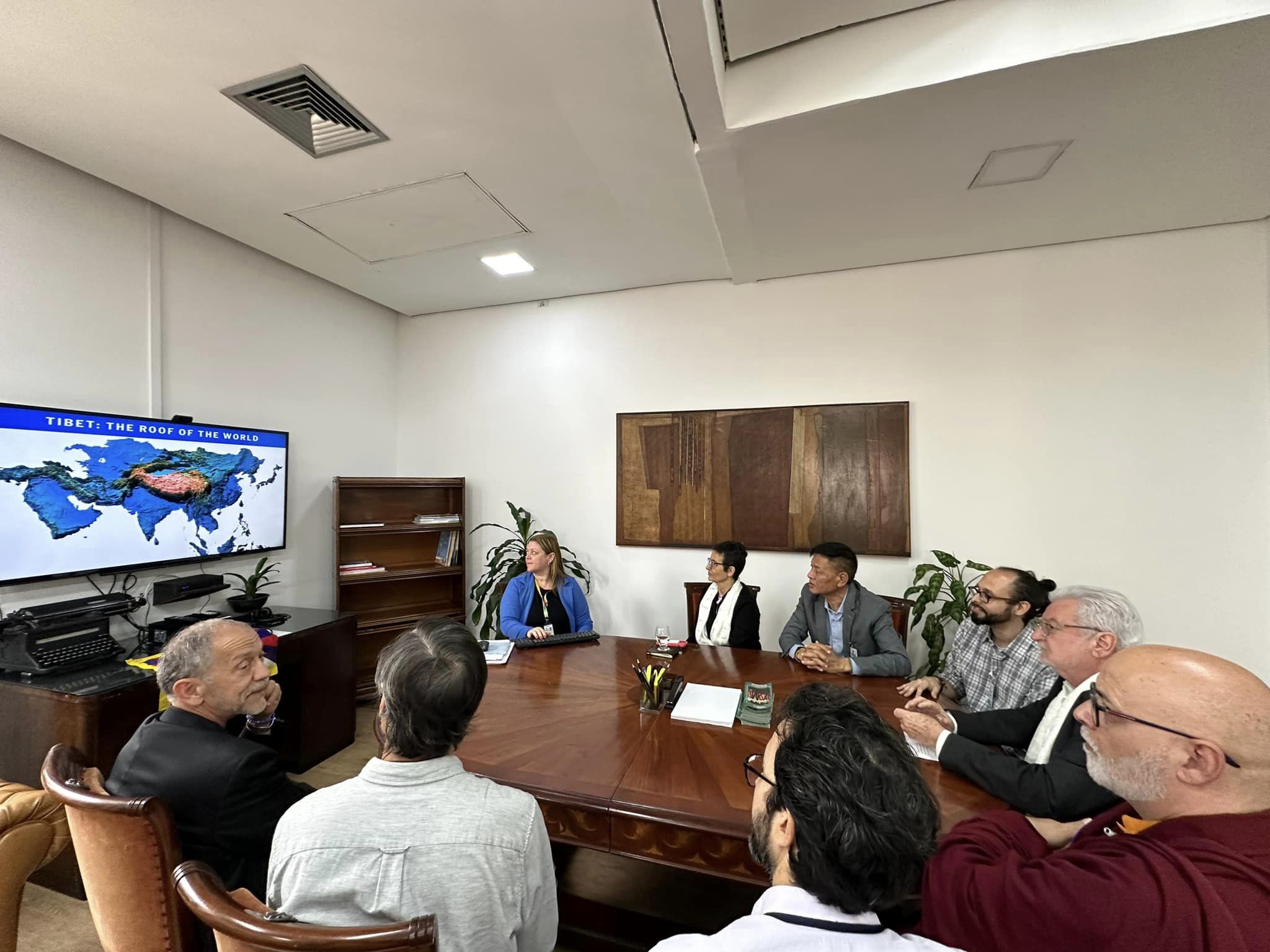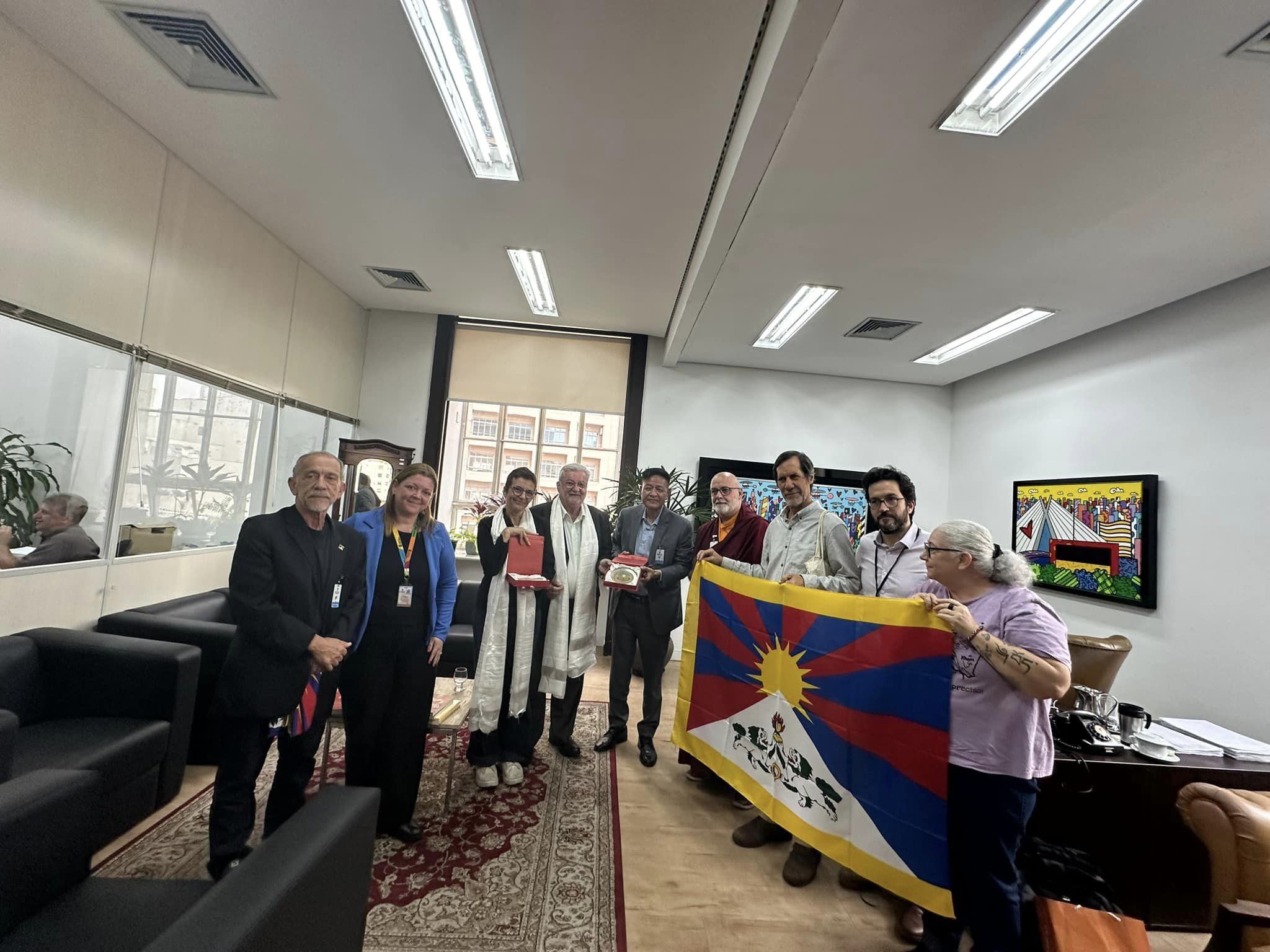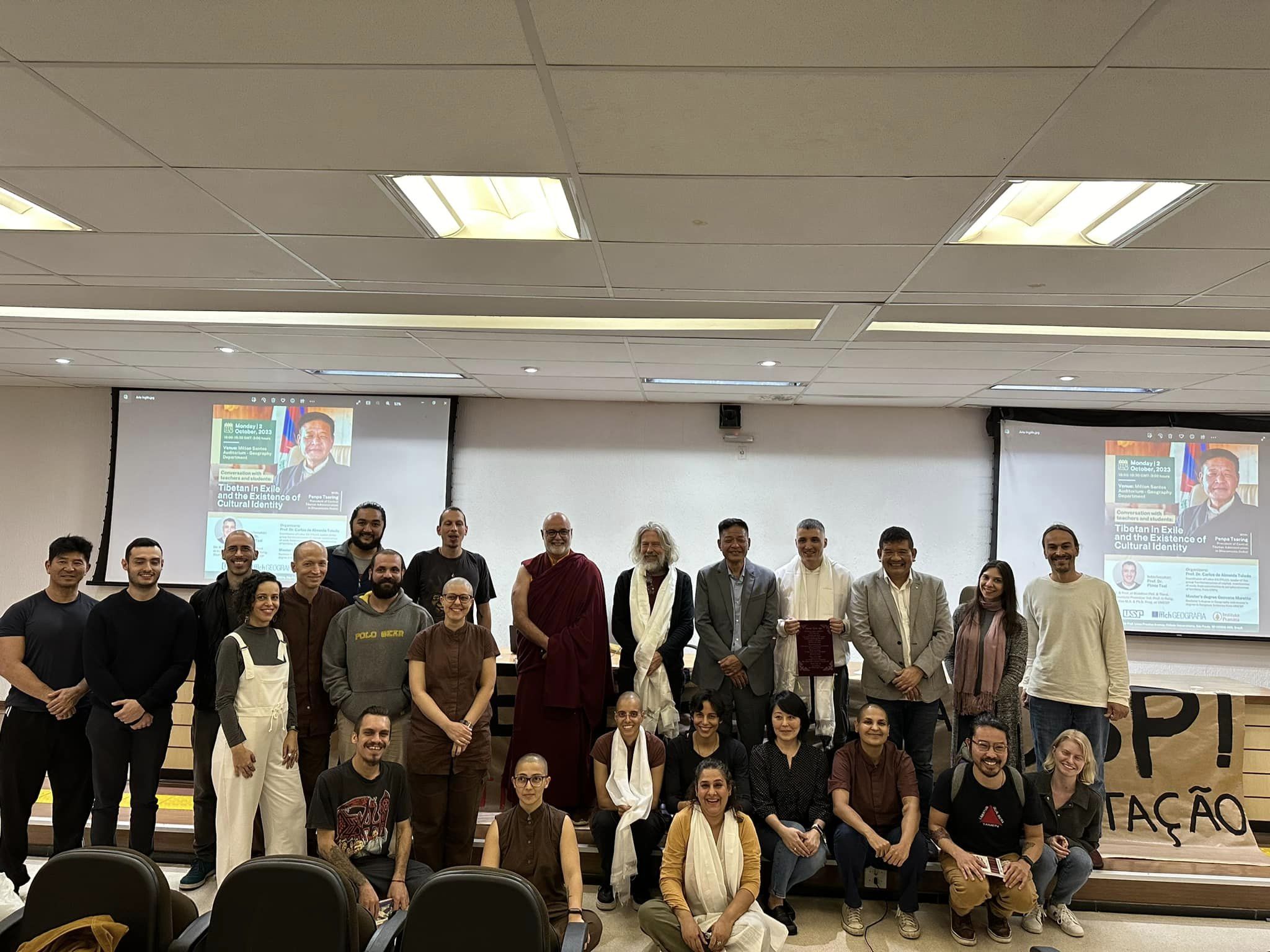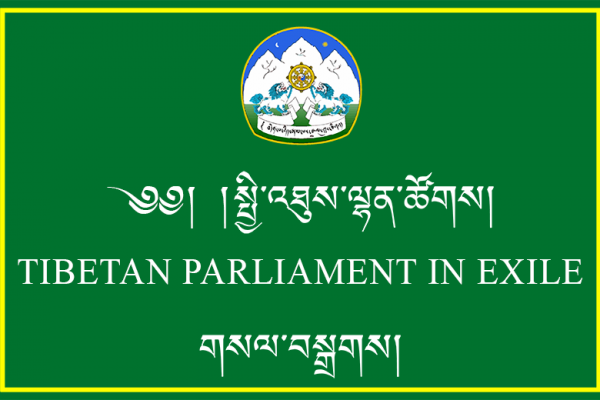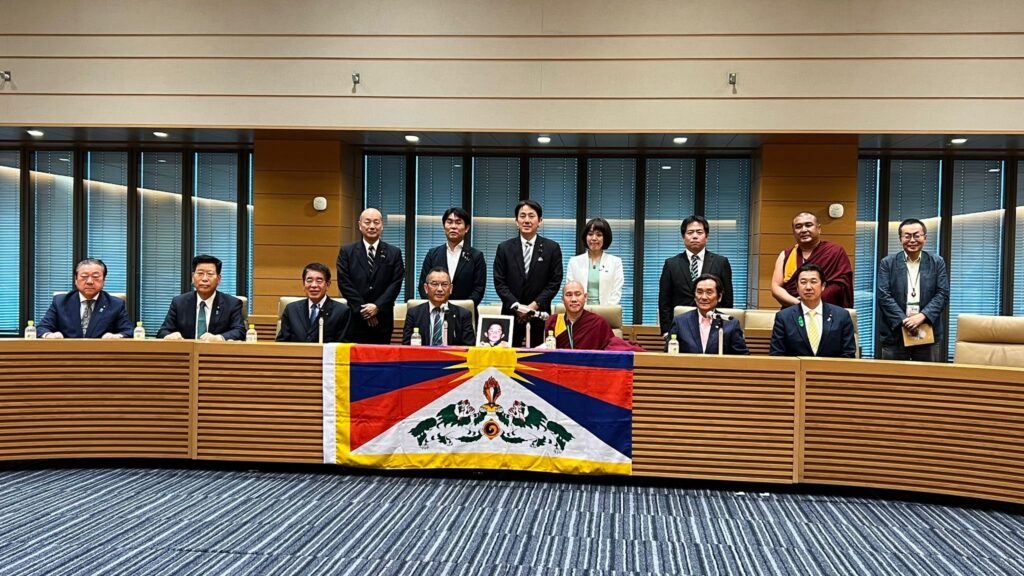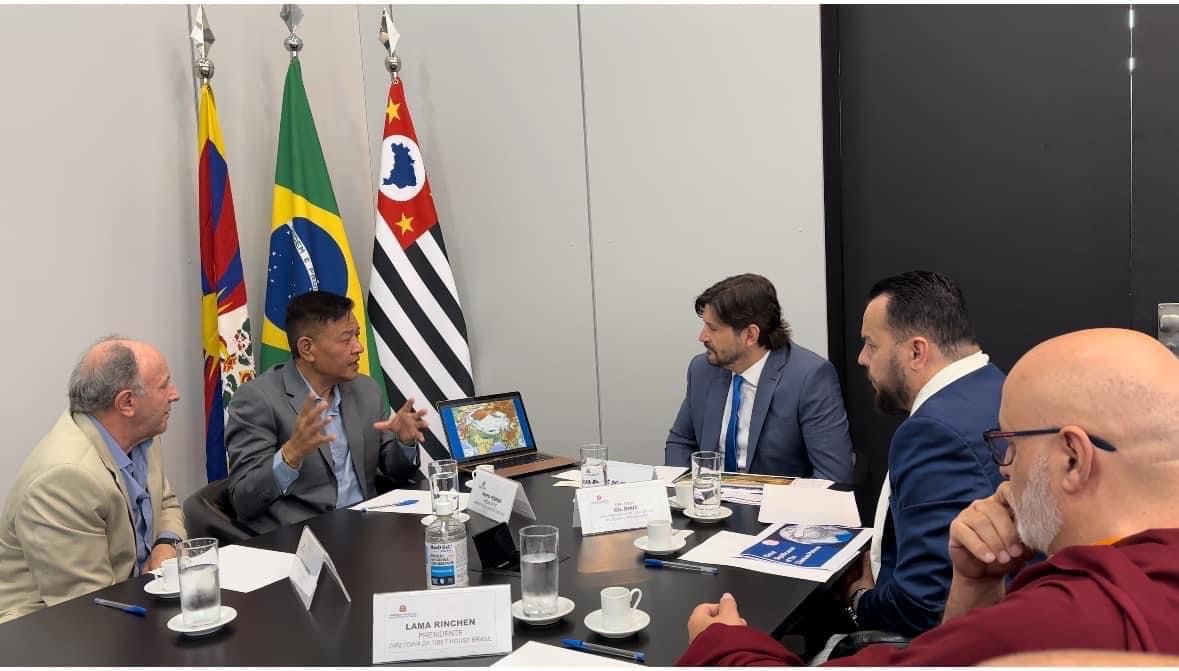
Sao Paulo: Sikyong Penpa Tsering, the democratically elected leader of the Tibetan people, received a warm reception at the Sao Paulo Legislative Assembly today, greeted by President Andre do Prado and Vice President Gil Dinuz. Members of the State Assembly, including Paula Fiorilo (Worker’s Party) and Rui Alves (Republicans), both of whom are members of the Committee on International Relations, also greeted the Sikyong on his first formal visit to the Sao Paulo Assembly.
The delegation accompanying Sikyong included Representative Jigme Tsering, Office of Tibet-Brasil, Walter Feldman, President of Longevidade Expo+Fórum who is also a former President of the State Assembly, Ven. Lama Rinchen Khyenrab, President, THB, Sandra Fernandes Erickson, RangZen: Movimento Tibete Livre-Brasil and Daniel Sermento, THB.
During the meeting, which lasted for more than an hour, Sikyong underscored the geo-political relevance of Tibet, highlighting its profound spiritual and cultural impact, and its indispensable role in addressing pressing environmental crises that resonate worldwide.
“Westerners refer to Tibet as the roof of the world. Asian countries view Tibet as the water tower of Asia, and many scientists, including Chinese researchers, now recognize Tibet as the third pole,” Sikyong remarked, underscoring how Tibet was not only a political issue but an environmental concern for the entire world.
Considering Brazil’s first-hand experience with intensifying climate change, evident in the frequent wildfires in the Amazon forest, Sikyong pointed out that Brazil was exceptionally well-placed to speak on climate change at a global level. He emphasized the strategic significance of both the Amazon rainforest and the Tibetan Plateau, specifically, pointing out direct co-relations of the impact the climatic conditions in the Amazon rainforest have on the Tibetan Plateau.
Sikyong Penpa Tsering appealed to the State Assembly leadership to approach their policy decisions regarding China and Chinese investment with careful consideration and responsibility. He emphasized the crucial role of democratic nations such as Brazil in advocating for global environmental security and upholding human rights and freedom when engaging with their Chinese counterparts.
Sikyong also stressed how inside Tibet, Tibetan identity remains on the precipice of extermination under President Xi Jinping’s policy of sinicisation and forced assimilation of future generations of Tibetans by coercing a million of them into state-run colonial boarding schools. “At least 157 Tibetans in Tibet have set themselves ablaze in the last more than a decade hoping against hope that the international community will come to their rescue,” said Sikyong, highlighting the dire situation inside Tibet.
In the same breath, Sikyong Penpa Tsering thanked the President, Vice-President and deputies for their gracious reception for it would resonate as a “powerful message of hope” for Tibetans inside Tibet.
The President and Vice-President of the Assembly extended their congratulations to Sikyong on his inaugural visit, expressing wholehearted support for the peaceful resolution of the vexed and protracted Sino-Tibet conflict. As a House of People’s Representatives, the President said the assembly remains committed to advocating for peace, dialogue, and an end to all forms of repression.
In response, Sikyong expressed his gratitude and extended a standing invitation to the State Assembly leadership and its deputies to visit Dharamshala.
Following the meeting, Sikyong visited the Sao Paulo city hall where he met with the city’s human rights secretary Soninha Francine and Gilberto Natalini, Executive Secretary for Climate Change, before heading to speak at the University of Sao Paulo.
This marks Sikyong Penpa Tsering’s first formal visit to Brasil. He is next scheduled to visit Colombia and Mexico as part of the Latin America tour.
